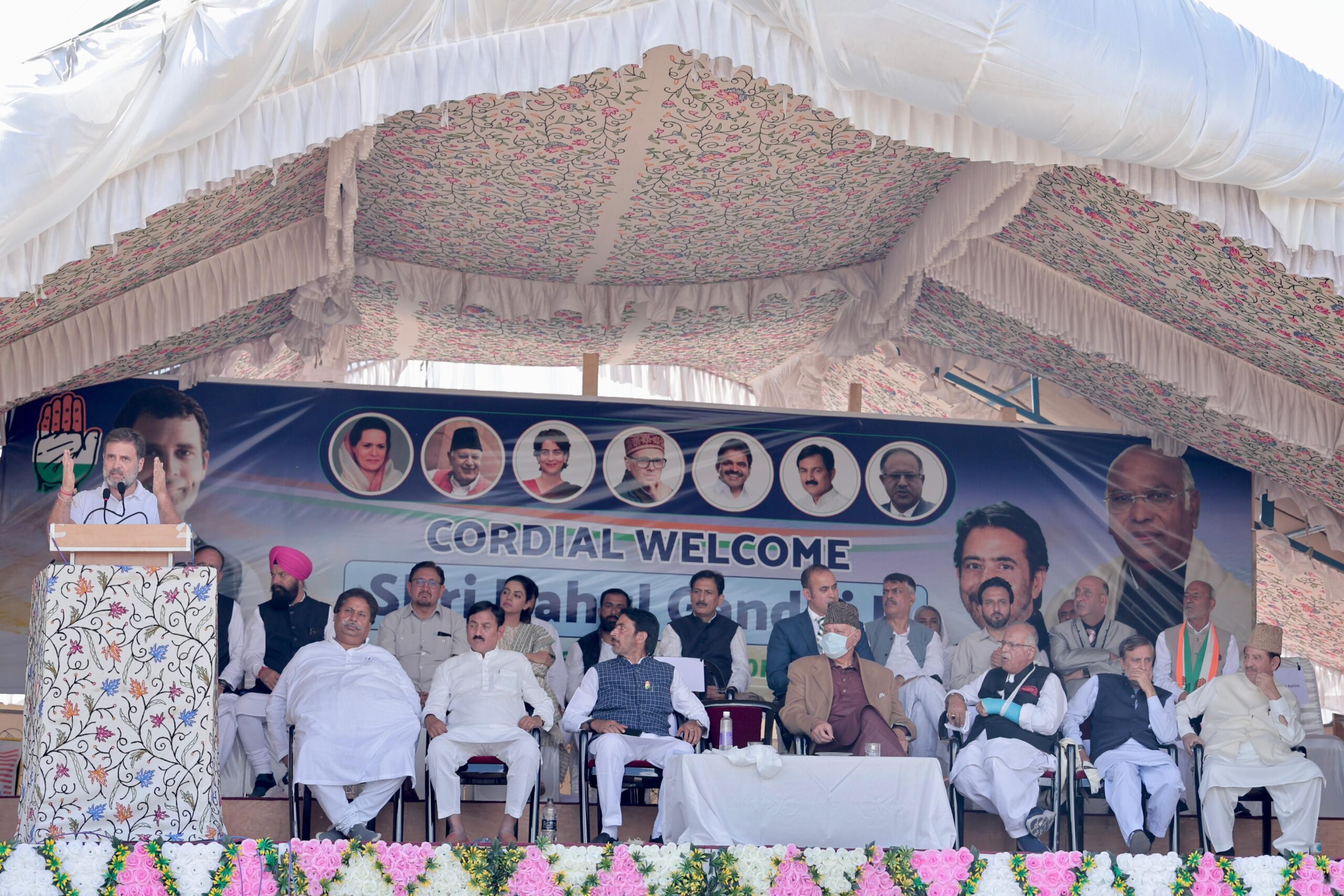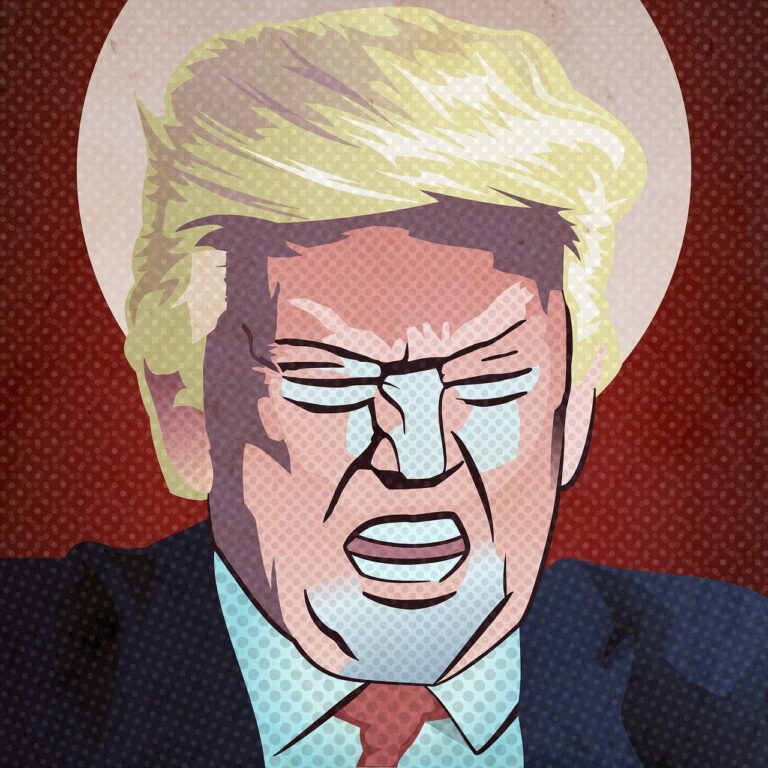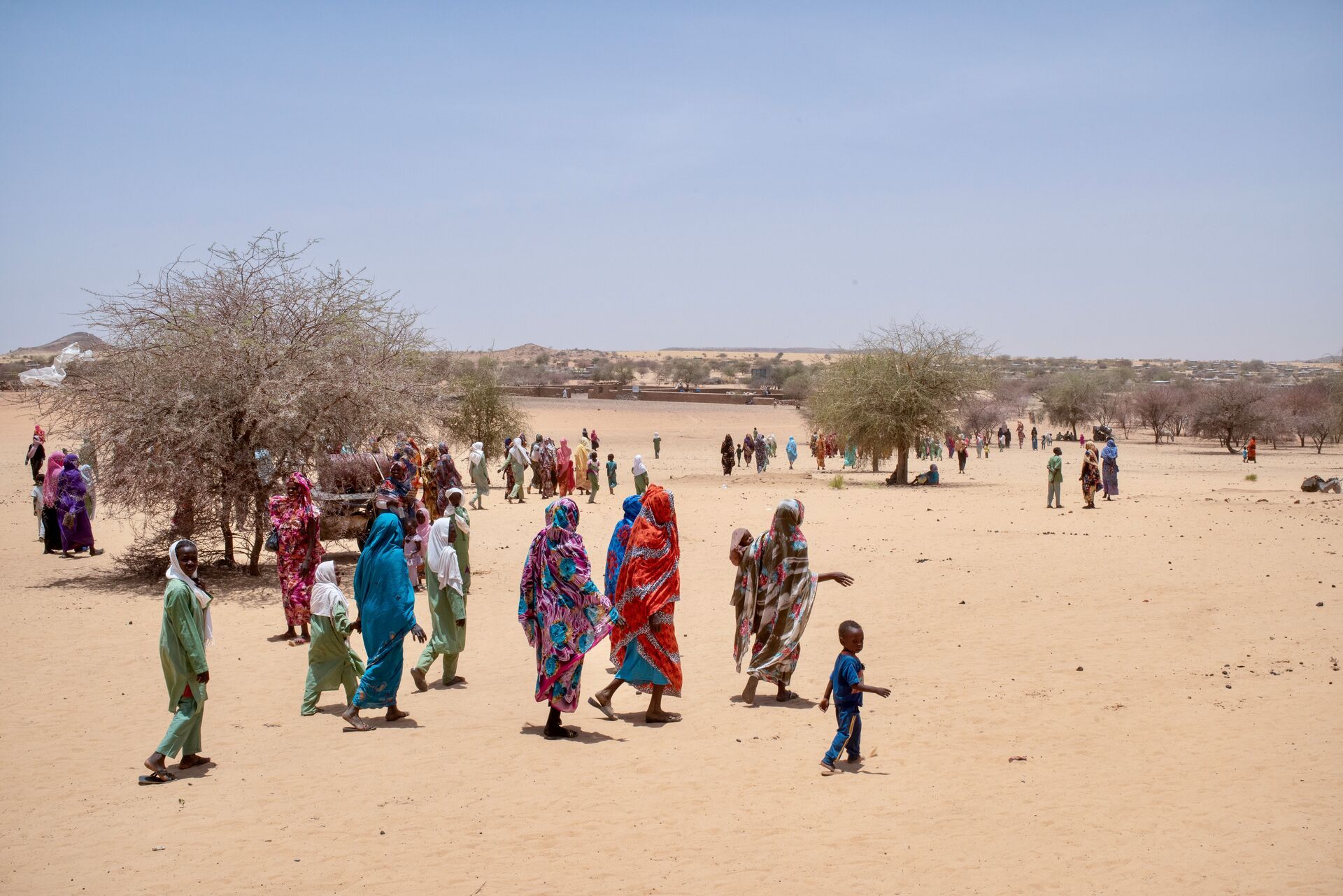
Congress Party leader Rahul Gandhat a public meeting at Dooru, Anantnag in Jammu and Kashmir on September 4, 2024
The Assembly polls in the Union Territory of Jammu and Kashmir (J&K) assume significance because of the issue of statehood. This is also the first time that elections are being held after the abrogation of Article 370, which provided special status to the state of Jammu & Kashmir.
The Congress Party is in alliance with the National Conference (NC) and other smaller groups and the basic thrust of the campaign is to restore the statehood for the J&K. Speaking in Anantnag, the Congress Party leader Rahul Gandhi accused the BJP of “snatching” the region’s statehood and rights of the people and vowed that the Congress Party would restore full statehood for J&K, with the help of the INDI Alliance.
On the other hand, the thrust of the Bharatiya Janata Party (BJP) campaign is that both the regional parties in the valley — the NC and PDP( People’s Democratic Party) are receiving the militants’ support and they want “revival of terrorism” in the Union Territory.
The BJP is also claiming that it restored complete peace and normalcy in the region after decades. The focal point of the BJP’s campaign is “Naya Kashmir” ( a new Kashmir) under Prime Minister Narendra Modi’s leadership.
Also read: Assembly Elections: J&K gears up politically
As both national political parties- the Bharatiya Janata Party (BJP) and the Congress Party – have kick-started their poll campaign in the strategically significant J&K which is going to polls after 10 years, there are several issues likely to dominate during the campaign in the coming three weeks.
The real core issue on the top is restoring statehood to J&K. Earlier this week, Rahul Gandhi in Srinagar said that for the first time in independent India, a state was downgraded into Union Territories and the rights of the people were snatched, while the normal process since 1947 was that all union territories gradually evolved into full-fledged states. Even for the main stakeholders in the valley—the NC and the PDP — the basic slogan is restoring the statehood for J&K.
On the other, the BJP is expected to target the family rules of the Abdullahs (represented by the NC’s father-son duo of Farooq Abdullah and Omar Abdullah) and the Muftis (represented by the PDP supremo Mehbooba Mufti). The BJP seeks to highlight how these families ruined the state and encouraged militancy and proxy war with Pakistan, as a result, there was no peace, harmony and development in the region.
The BJP alleged that the manifestos of the two regional parties – NC and PDP— advocated the revival of militancy and former militants are openly campaigning for the candidates of NC and PDP. The BJP general secretary, Ram Madhav, urged the people to decide whether they want peace or terrorism. If they want peace, vote for BJP, he appealed. He criticised the manifestos of the NC and the PDP, which include promises to restore Article 370 and engage in talks with Pakistan to “resolve the Kashmir issue”. To counter this, the J&K Congress chief Tariq Hameed Karra said that Ram Madhav seems unaware of his party inducting ex-militants into its fold.
Meanwhile, today, soon after releasing the party manifesto in Srinagar, the Union Home Minister and senior BJP leader Amit Shah held a top-level meeting with the core group of the state BJP unit to review the party’s poll preparations and ground-level activities. Tomorrow, Shah will discuss with the party members to ensure success in the polls. Shah’s visit comes at a critical time for BJP in J&K as the party faces growing challenges with several members are workers protesting and some of them leaving the saffron party after being denied tickets.
BJP sources said that Prime Minister Narendra Modi would be extensively campaigning in the J&K from next week. The party released the list of star campaigners for the assembly polls. The list of main campaigners included, Defence Minister Rajnath Singh, and other Union Ministers JP Nadda, Shivraj Singh Chauhan, Nitin Gadkari, Manohar Lal Khattar and G Kishan Reddy.
On the other hand, the Congress party also released a list of 40 star campaigners, who will be participating in the ensuing first phase, scheduled to be held on September 18, 2024. Among them include, Mallikarjun Kharge, Sonia Gandhi, Priyanka Gandhi Vadra, K C Venugopal, Ambika Soni, Salman Khursheed, Jairam Ramesh, Manish Tiwari, Sachin Pilot, Charanjeet Singh Channi, Ajay Makhan, Imran Masood among others.
All said and done, it is clear that both the national parties the BJP and Congress are on a weak wicket in the Valley. Congress is weak organisationally and is under the grip of an old caucus with the party’s central leadership having failed to loosen their stranglehold. The Congress’s performance in the Jammu region is under scrutiny. The BJP on the other is banking on Hindu votes in the Jammu region and a split of votes among the regional parties in the valley. To date, the regional parties— the NC and the PDP— seem better positioned in the valley and some pockets of influence in the Jammu region.
J&K is going to polls in 3 phases on September 18, 25 and October 1, 2024. These are the first assembly polls after the abrogation of J&K’s special status in 2019. The J&K has a 90-member Assembly. This is divided between the Jammu and Kashmir segments in the ratio of 43: 47 seats.
*Senior journalist





